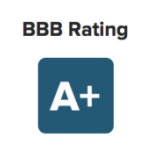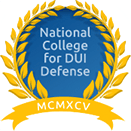Cranford NJ Receiving Stolen Property Attorney
The defense lawyers at the Law Offices of Jonathan F. Marshall have over 100 years of collective experience to help you defend your receiving stolen property charge. Our team of seasoned criminal attorneys, several of whom are former prosecutors, have successfully represented countless clients charged with an offense at the Superior Court in Elizabeth, as well as in Union County municipalities like Cranford, Union, Elizabeth, Springfield and Hillside. If you were arrested for receiving stolen property or any other theft offense, an attorney on our staff is equipped with what you need. Contact us anytime 24/7 at 908-272-1700 to speak to a lawyer in a free initial consultation.
Basics of the NJ Receiving Stolen Property Law
Though charged as a separate offense under N.J.S.A. 2C:20-7, receiving stolen property is incorporated in the consolidated theft statute of N.J.S.A. 2C:20-2, meaning that the degree of the offense is directly related to the value of the property that is stolen. Nevertheless, the elements for this offense are different. A person is guilty of receiving stolen property if he or she knowingly receives or brings into this State movable property of another knowing that it has been stolen, or believing that it is probably stolen. The two most important questions that the statute leaves open to interpretation are what is “receiving” and how is the mental state of probably knowing that something is stolen proven. Under the Code “receiving” includes the acquiring of possession, control, title or the lending on the security of the property. Lending on the security of the property had not been a crime under the prior law. As a consequence under the Code a pawnbroker who acquires the property by accepting it as security could be convicted if the other elements are proved. Moreover, this possession element encompasses both actual and constructive possession, so it seems that the New Jersey State Legislature in crafting this statute had the intention of drawing the offense very broadly.
As for the state of mind necessary for conviction in this offense, the statute creates a set of presumptions to help the State prosecute their case. The requisite knowledge or belief is presumed in the case of a person who is found in possession or control of two or more items of property stolen on two or more separate occasions. The knowledge or belief is presumed if the person has received stolen property in another transaction within the year preceding the transaction charged. The knowledge or belief is presumed where a person in the business of buying or selling property of the sort received, acquires the property without having ascertained by reasonable inquiry that the person from whom he obtained it had a legal right to possess it. The knowledge or belief is presumed if the person is found in possession of two or more defaced access devices and, lastly, the knowledge or belief is presumed if the person is found in possession of a cargo carrier without proper documentation or other evidence of right to possession. This means, in plainer terms, that the State doesn’t have to prove that you knew or had a belief that the property was probably stolen in order to make out its case if you are found with any of the above items.
What The Prosecutor Must Prove
The material elements of a receiving stolen property offense are: (1) possession of property of another; (2) that was stolen; (3) knowledge or belief that the property was probably stolen on the part of the accused; (4) possession or control of the property by the defendant; and (5) the conduct was committed knowingly.
Penalties for Receiving Stolen Property
This is a disorderly persons offense where the property that is received is worth between $0 and $200. It is a fourth degree offense where the property that is received is worth between $200 and $500. It is a third degree offense where the property is worth between $500 and $75,000. Lastly, it is a second degree offense for anything received that is worth in excess of $75,000. A second degree offense carries with it the possibility of ten years of incarceration and fines of up to $150,000.
Scotch Plains NJ Receiving Stolen Property Lawyer
You can see that a receiving stolen property offense can result in significant penalties. In fact, you can be sent to state prison for years if you are convicted of either a third degree crime or second degree crime for receiving stolen property. Defending this charge is not something you should undertake without a skilled lawyer given these potential consequences. The attorneys in the Union NJ Office of the Law Offices of Jonathan F. Marshall have decades of experience defending individuals arrested for receiving stolen property in Scotch Plains, Westfield, Clark, Roselle, Linden and other towns. If you were charged with receiving stolen property in Union County, do not hesitate to contact our office to speak to one of our lawyers. We are available to assist you at 908-272-1700.












